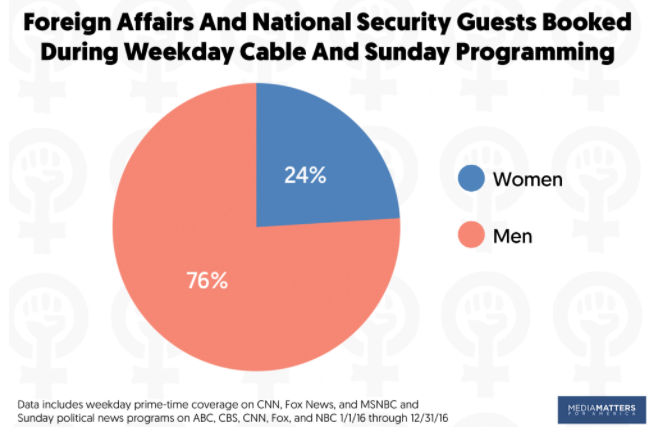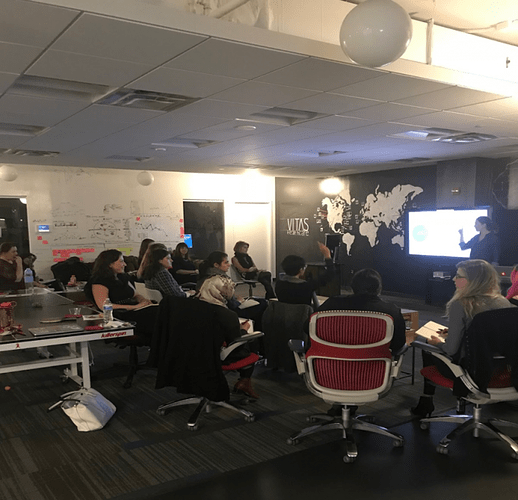Since 2013, the Worldwide Threat Assessment of the U.S. Intelligence Community has listed the cyber threat as the number one national security and economic security threat. From interference in global elections to critical infrastructure attacks to compromising worldwide banking systems, adversaries increasingly pursue digital means to achieve various objectives, including espionage, financial gain, and undermining economic and political stability. Given the growing importance of the cyber threat, it is disconcerting that so much of the coverage excludes perspectives from female experts. To address this gap, last night Endgame hosted a Foreign Policy Interrupted workshop on media training for women who work at the intersection of cybersecurity and national security.
FPI Interrupted co-founder Elmira Bayrasli led the workshop that focused on the fundamentals for getting published and how-to tips for a range of media coverage. Participants from NGOs, think tanks, and industry learned the art of the media pitch and shared their own experiences and frustrations with trying to break through the paper ceiling, where 82% - or 5 out of 6 - names mentioned in print media are men. The data isn’t much better for television coverage, especially for national security. As the Media Matters analysis demonstrates in the chart below, over three-quarters of national security guests are men. Moreover, when women are guests for national security or cybersecurity issues, they are frequently included for discussions on gender, and not their expertise.

Augmenting more balanced representation in media coverage is important well beyond fairness, equality, and professional advancement (although these certainly are important). First, meaningful inclusion of women in national security discussions positively impacts national security issues such as peace negotiations and stability. Diversity of all kinds has further been associated with more innovative and creative solutions, the kind that are desperately needed given the growing complexity of geopolitical, cybersecurity challenges. Second, the skewed media coverage impacts the next generation of national security and cybersecurity experts. Both the national security community and tech industry already struggle with well-publicized pipeline and retention challenges. Cybersecurity falls at the intersection of these two, and brings the challenges of both national security and tech industries. Given the current state in each of these industries, the number of women in cybersecurity remains stagnant at around 10% of cybersecurity professionals. The lack of media coverage of women only exacerbates these issues.
More balanced representation of female cybersecurity experts in media is a crucial step to not only better address the growing and diverse cybersecurity challenges, but it also impacts the cybersecurity workforce shortage and retention. At Endgame, we’ll continue to advocate and sponsor greater representation across all groups. Organizations that focus on amplifying the voice of women (such as Foreign Policy Interrupted) and growing the pipeline (such as Warrior Women) are crucial to addressing the imbalance. The numerous technical and geopolitical challenges within cybersecurity are only expanding in magnitude and breadth. It is essential all voices are included to produce the most innovative and creative defenses and strategies in this increasingly complex geopolitical environment.
Article Link: https://www.endgame.com/blog/executive-blog/amplifying-voice-women-cybersecurity-pop-workshop-fpi
